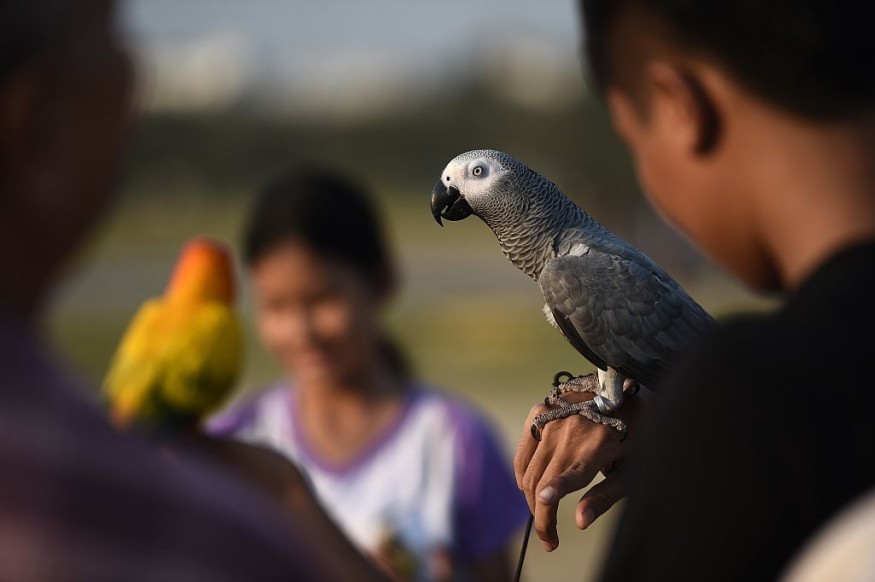Ugandan security forces have detained a Congolese national after being accused of the unauthorized transport of 122 African grey parrots (Psittacus Erithacus) in the Kisoro town of Western Region, Uganda.
The parrots were crammed inside small cages when he was confronted by the local officials.
Joint Security Operation

Following an intelligence tip-off that the parrots were being smuggled into Uganda from Kinshasa, the capital city of the Democratic Republic of Congo, the Ugandan government initiated a joint security operation to arrest the suspected smuggler, according to Bashir Hangi, UWA spokesman, as cited by the Kenya news site The Star.
The operation consisted of the Ugandan Peoples' Defence Forces (UPDF), the Uganda Wildlife Authority (UWA), and the Ugandan Police Force (UPF).
The security forces arrested the alleged smuggler in the village of Kibaya, located near the border town of Bunagana on Thursday, April 21.
Following the operation, the suspect by the name of Bob Mbaya Kabongo has been detained at the Central Police Station in Kampala, Uganda.
Among the African grey parrots found in Mbaya's possession, three of the birds were already dead.
The confiscated parrots have been transferred to the Uganda Wildlife Conservation Education Centre (UWEC).
The rare parrots were later on released into the wild.
Wildlife Trafficking
UWA reportedly reiterated its commitment and determination to make Uganda a "dangerous route" for wildlife traffickers.
UWA executive director, Sam Mwandha, stated that they will not allow Uganda to become a transit route and will continue to arrest and prosecute wildlife offenders, as per the Ugandan news site Daily Monitor.
Uganda has recorded multiple cases of wildlife trafficking, including ivory horns from rhinos and elephants, as well as wildlife products from other animals.
80% of ivory trafficking occurs in the African countries of Kenya, Uganda, and Tanzania, according to Uganda's Wildlife Conservation Society (WCS).
The organization also highlighted that criminal gangs use these horns to finance terrorism.
Based on the WCS report, an estimated 96 elephants in Africa are killed daily for their horns, and 100 wildlife rangers are murdered while on duty each year.
International Wildlife Trade
Despite the notorious reputation of the East African country when it comes to wildlife trafficking, it is only reportedly preceded by other countries such as China, Laos, Thailand, and Myanmar in terms of being a hotspot for illegal wildlife trade and trafficking worldwide.
However, these illegal activities go unpunished in accordance with the multinational agreement Convention on International Trade in Endangered Species of Wild Fauna and Flora (CITES).
The CITES is a multinational agreement that governs how to handle smuggling wild animals and wildlife products between two or multiple countries.
Endangered Species
The International Union for Conservation of Nature (IUCN) has classified African grey parrots as an endangered species under its Red List of Threatened Species, a vast database that includes animal species whose populations are declining or being monitored for conservation efforts.
The endangered parrot species have faced habitat loss and destruction of large nesting trees, which have affected their numbers.
© 2026 NatureWorldNews.com All rights reserved. Do not reproduce without permission.





